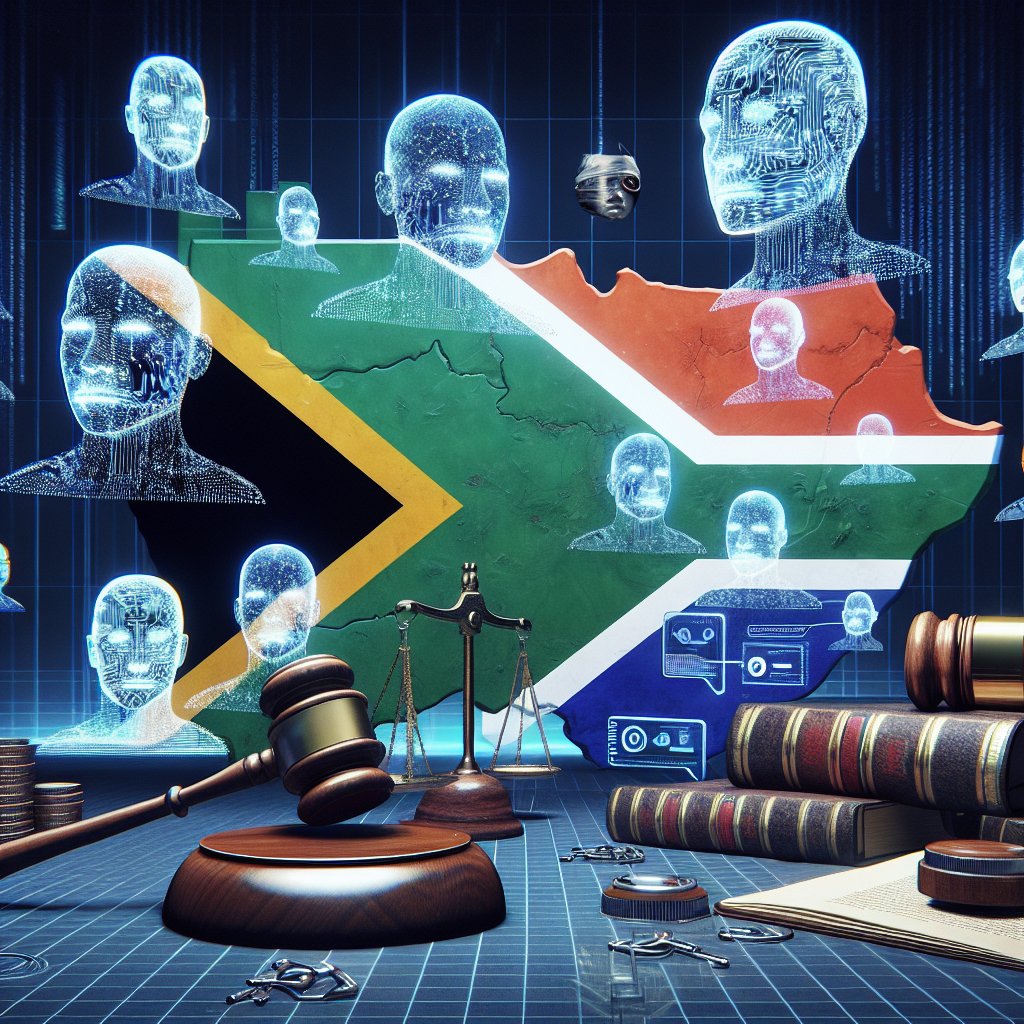Image created by AI
The Rise of Deepfakes in South Africa: Necessity for Legal Protection of Image Rights
In a world where seeing is no longer believing, the proliferation of 'deepfakes' presents a modern challenge, accentuated by the alarming incident involving Leanne Manas. The issue of deepfakes, a technology once confined to the fringes of the entertainment industry, is now a global concern with far-reaching implications in politics, privacy, and personal reputation. As South Africans become increasingly exposed to such deceptive content, the absence of a legislative framework to counteract its effects is glaringly apparent.
Deepfakes, forged through advanced artificial intelligence algorithms, are now readily accessible to the masses. Tools like FaceSwap and ZaoApp democratize this technology, allowing almost anyone with a smartphone and intent, to craft convincing fabrications. While there are benign uses, like in French soap operas or medical imaging, these are overshadowed by the potential for abuse, particularly with an eye towards the impending national elections.
It is a pivotal moment for South Africa; the country is at a crossroad and must decide how it will protect its citizens from the digital manipulation of reality. The importance of legal protection for an individual's image rights is not simply a theoretical discussion — it's become a pressing concern for the safety and integrity of its democracy.
Learning from global precedents, we can see the United States taking bold strides to mitigate the risks of deepfakes. Texas, Maryland, Massachusetts, California, and New York each offer examples of dedicated legislation aimed at curtailing the creation and spread of these digital deceptions, particularly with respect to political tampering and personal violations.
These legislative initiatives not only criminalize the production and dissemination of deepfakes with malicious intents such as election interference or invasion of privacy through sexually explicit content, but they also establish a legal precedent for protecting an individual's likeness.
However, in South Africa, the legal arsenal remains bare. The country lacks a clear recognition of image rights within either case law or legislation – a concern I address extensively in my LLD thesis, advocating for legal recognition and protection of individual image rights.
For effective regulation and remedy, an individual's image must be clearly defined and the infringement of these rights unequivocally specified within the legal framework. Protections must encompass the full scope of unauthorized uses, including deepfakes, and provide legal recourse for those affected.
As we move forward, South Africa must establish robust image rights legislation to protect against the wrongful commercial exploitation of one's likeness, manipulative political meddling, and personal harms inflicted by deepfakes.
The need for legal intervention is not a matter of if but when. As technology continues to advance and deepfakes become increasingly sophisticated, so too must our laws evolve. South Africans deserve to trust in the authenticity of what they see and secure their personal rights in the digital age. As the elections draw near, the urgency for legislative action has never been greater.

